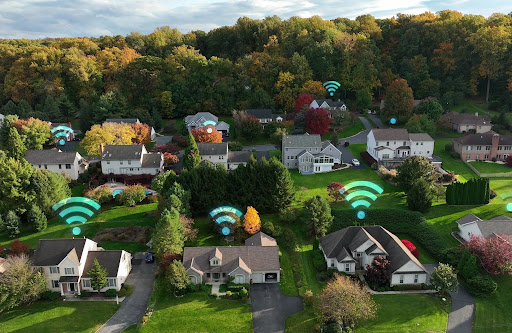Would HOA Apps Be Helpful To Your Community Or Just An Added Expense?
Some HOA board members swear by them. Others aren’t so sure whether HOA apps are a smart investment or just another tech tool that collects dust after a few months.
The Promise of HOA Apps
At their best, HOA apps promise smoother communication, fewer missed dues, and more engaged communities. They can act like a central nervous system for your HOA—tracking maintenance requests, pushing out emergency alerts, and letting residents pay assessments from their phones in less time than it takes to microwave popcorn.
They’re not just digital gimmicks. Many HOA management apps combine tools that used to require three different platforms and a part-time manager juggling spreadsheets. From architectural requests to document storage to real-time voting, apps like TownSq, AppFolio, or Buildium have become cornerstones for tech-savvy communities.
Communication: Where It All Starts (And Sometimes Ends)
If you’ve ever tried to get 87 homeowners to read a bulletin board notice, you know that communication is the hill most board members silently die on. HOA communication apps promise to fix this.
They centralize updates, allow instant push notifications, and give residents a space to ask questions or raise concerns without needing to corner you in the clubhouse parking lot. Some apps even let you control who sees what—perfect for separating resident news from vendor chats or board discussions.
But there’s a caveat: if residents don’t download the HOA mobile app or engage with it, it becomes another silent tool. It’s well-intentioned, but underused.
So, before signing any contract, boards should ask: Do our homeowners prefer digital tools? Are they likely to use an app over email or a physical notice? If your community skews older or less tech-inclined, a mobile app may end up like the treadmill in your guest room: nice in theory, mostly gathering dust.
Transparency Without the Headache
One underrated perk of HOA management software? It helps with trust. With all the talk around assessments, budgets, and enforcement actions, transparency can either be your ally or your biggest pain point.
Apps like Condo Control or CINC Systems allow homeowners to access governing documents, meeting minutes, or budget breakdowns anytime they want—no need to email the board or chase down a manager. That kind of access helps curb suspicion, reduces repeated questions, and builds a sense of accountability.
You’d be surprised how much frustration fades when people can find answers themselves. But here’s the kicker: those documents still need to be uploaded and maintained. If no one on the board—or your management team—is regularly updating the platform, it quickly becomes outdated, and your homeowners will stop trusting it.
Maintenance Requests: No More Sticky Notes

In older communities or those run by more traditional boards, work orders can get lost. Residents slip notes under clubhouse doors, call the board president directly, or scribble on clipboards in the gym. No judgment—we’ve all been there.
Community management apps take that chaos and put it in one place. A resident reports a broken gate? It’s logged, timestamped, assigned, and tracked. No more miscommunication, and no more pretending you didn’t get the message.
Many HOA apps even let you upload before-and-after photos or comment on job progress. It’s like turning your community’s repairs into an efficient mini helpdesk—and it keeps vendors accountable, too.
Are the Costs Justified?
Most HOA apps are priced per unit or tiered based on the features they offer. A small community might pay $50–$150/month; larger ones can pay thousands annually, depending on complexity. That cost can feel steep, especially if assessments are tight or residents are wary of fee hikes.
But here’s a way to reframe it: how much are you spending on manual processes, printing notices, or managing complaints that spiral because of missed communication? Often, the app’s cost is lower than the cumulative drain on your board’s time. However, time is a resource many HOAs undervalue until it’s gone.
Still, cost-benefit only works if the board (and the residents) commit to using the platform. That means onboarding, regular updates, and encouraging homeowners to engage. Without adoption, even the most powerful tool can fall flat.
Not One-Size-Fits-All
This is where nuance comes in. Not every HOA needs a full-featured HOA management app loaded with financial tools, architectural reviews, and live chat options. Some communities thrive with simpler platforms like HOA Express or Google Workspace, plus a mass texting service. Others, especially those with hundreds of homes or amenities like tennis courts, elevators, or security gates, might need something more robust.
There’s no shame in starting small and scaling up. It’s smarter than overcommitting to a system that overwhelms your board and confuses your community.
What About Security?

With apps storing sensitive data, such as resident addresses, banking information, and possibly even gate codes, security is a legitimate concern.
Reputable HOA management apps typically encrypt data, offer secure logins, and comply with housing and data privacy laws. Still, boards should ask detailed questions during onboarding: Where is the data stored? Who has access? What happens if we leave the service? A little paranoia isn’t a bad thing when you’re protecting community trust.
The Human Element
Here’s where most articles skip ahead. Fancy tools don’t make apathetic communities more involved. No matter how sleek the platform, HOA apps won’t magically fix fractured trust or disengagement.
They help, streamline, and offer structure. However, relationships between the board, residents, and management continue to drive everything.
Before you buy anything, ask yourself: What are we hoping this app will solve? If the answer is poor communication, slow maintenance response, or document accessibility, then an app could be the step forward your board needs. However, if the problem is deeper—such as a lack of cohesion, broken trust, or absentee leadership—no app can cover that up.
Modern Solutions for Modern Communities
HOA apps can absolutely help communities run more efficiently, save time, and reduce headaches, but only if they’re well-suited to your needs and widely adopted by the people who use them. Technology should serve the community, not confuse it or quietly bleed the budget.
Looking to handle your HOA operations more efficiently with apps? Freedom Community Management provides HOA management services in Florida. Call us at 904-490-8191 or contact us online to learn more!
Related Articles:








